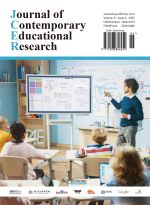Abstract
With the rapid development of artificial intelligence (AI) technology, its application in higher education has gradually shifted from traditional teaching aids to deeper levels of interactive learning and emotional connection support. AI can enhance teaching efficiency, personalized learning, and real-time feedback; however, in areas such as emotional communication and teacher-student interaction, AI still cannot fully replace the role of teachers. This study aims to explore the transformation of teacher-student relationships in the era of AI, analyze the impact of AI technology on teaching interaction, emotional support, and teacher-student trust, and propose strategies to address these challenges. The research findings indicate that while AI has significant advantages in improving educational efficiency, it has limitations in interpersonal emotional support and the transformation of the teacher’s role. To ensure the comprehensiveness and humanization of education, educators should strengthen emotional care and improve students’ emotional literacy in the use of AI, and implement transparent data management and privacy protection measures to enhance teacher-student trust. The study also suggests that by enhancing teacher-student trust, strengthening emotional support, and increasing transparency, educators can effectively address the challenges of teacher-student relationships in the AI era. This research provides theoretical support and practical guidance for the integration of AI technology with educational humanistic care, promoting more comprehensive, personalized, and humane educational development.
References
Lin H, Chen Q, 2024, Artificial Intelligence (AI)-Integrated Educational Applications and College Students’ Creativity and Academic Emotions: Students and Teachers’ Perceptions and Attitudes. BMC Psychology, 12(1): 487.
Vistorte AOR, Deroncele-Acosta A, Ayala JLM, et al., 2024, Integrating Artificial Intelligence to Assess Emotions in Learning Environments: A Systematic Literature Review. Frontiers in Psychology, 15: 1387089.
Mayrene FHE, Basantes AC, Martinez MFC, et al., 2024, Emotional Interaction and Artificial Intelligence in Educational Research. Journal of Ecohumanism, 3(8): 4858–4871.
Alenezi A, 2024, The Effect of Emotional Intelligence on Higher Education: A Pilot Study on the Interplay between Artificial Intelligence, Emotional Intelligence, and E-Learning. Multidisciplinary Journal for Education, Social and Technological Sciences, 11(2): 51–77.
Lu Z, Zhou L, 2025, Entertainment Robots based on Internet of Things and Artificial Intelligence in the Process of Student Stress and Emotion Recognition. Entertainment Computing, 52: 100786.
Wang S, Wang H, Jiang Y, et al., 2023, Understanding Students’ Participation of Intelligent Teaching: An Empirical Study Considering Artificial Intelligence Usefulness, Interactive Reward, Satisfaction, University Support and Enjoyment. Interactive Learning Environments, 31(9): 5633–5649.
Pillai R, Sivathanu B, Metri B, et al., 2024, Students’ Adoption of AI-Based Teacher-Bots (T-Bots) for Learning in Higher Education. Information Technology & People, 37(1): 328–355.
